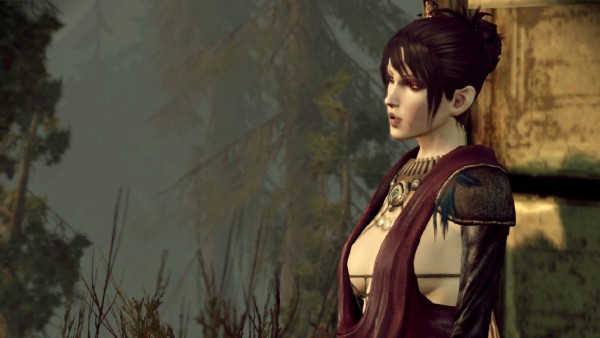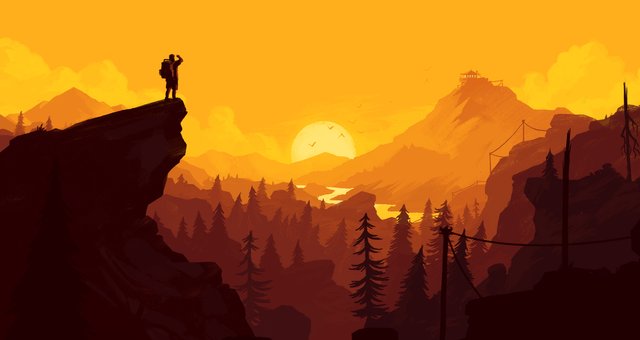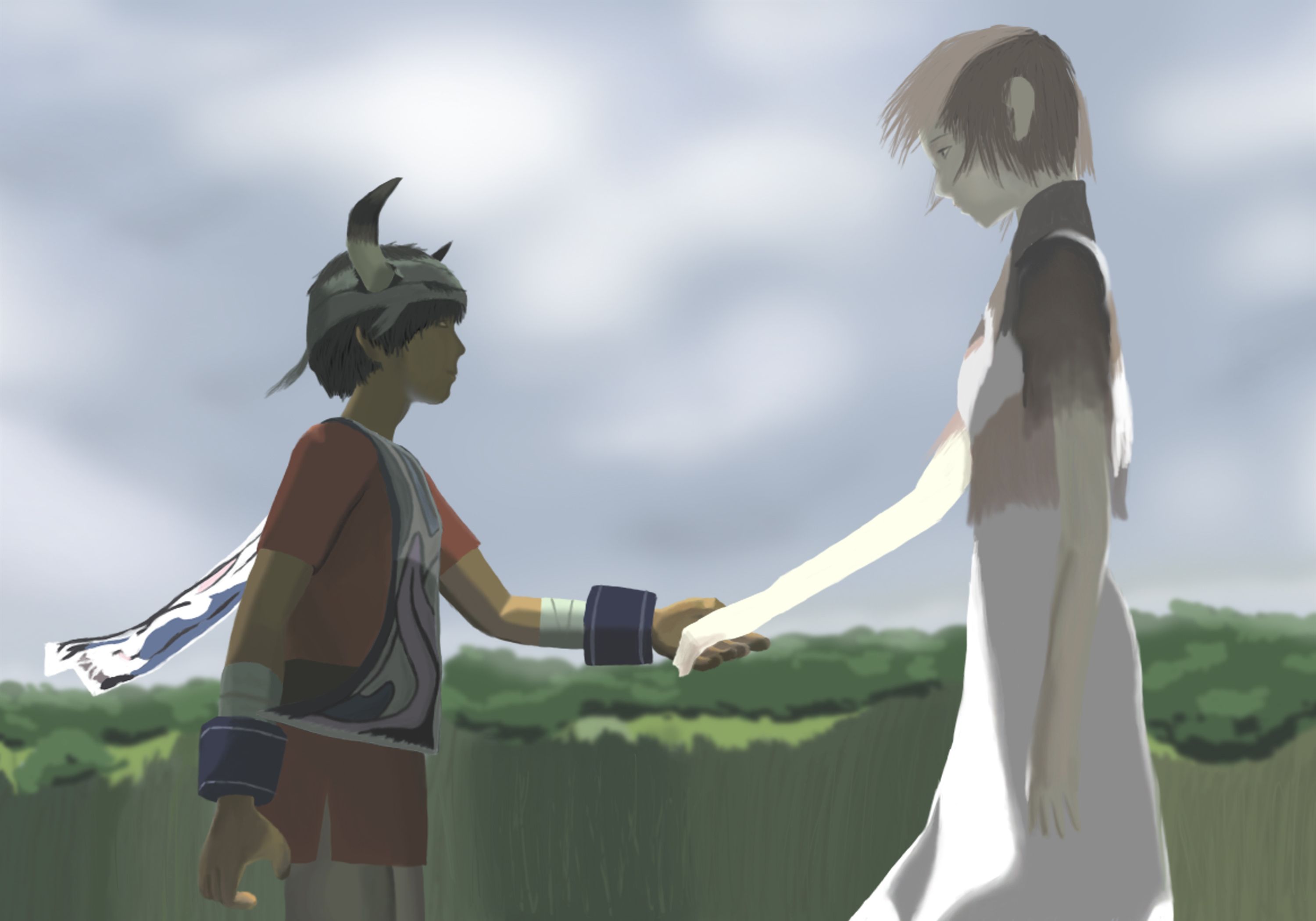The Importance of Narrative Design in Video Games

With games like Firewatch, Soma, and Dragon Age that have exemplary narrative design, it's easy to forget that not only a few years ago most games had terrible writing. Narrative design as a job title is fairly new, and many studios have contract writers either come in at the end to fill in dialog, or have non-writers write it. Often the story is treated as an after-thought, something that serves the game mechanics, and not the other way around. There are several reasons for this - oftentimes people dismiss the importance of story, and sometimes they overestimate their ability to write, and devalue just how much skill it requires.
Video gaming itself came out of the arcade tradition - games weren't designed to have absorbing, drawn-out stories. They were designed to make you spend as many quarters as possible by creating challenging game-play. There was often a thin layer of narrative, but the mechanics superseded it. As games evolve, and more indie games have been allowed to come into the spotlight thanks to platforms like Steam, we've been able to see different types of games, and people have been able to experiment with off-beat or unusual styles of gameplay.

What people are coming to realize is that a great story is often crucial to a great game, and a compelling story will keep people playing even when the mechanics are lacking. That's because we as humans are designed for story. We are built to give context to the random things happening around us. I know many people who, when playing video-games, will build their own stories in their heads even when the game itself doesn't have an obvious one. We can't help but create stories all around us. And with a great story, we become attached to the characters and the world and the experience. A story invests us into the universe.
Oftentimes game design is divided into "systems" and "content" design (Although some studios also have level designers, monetization designers, and narrative designers). System design is design about how the mechanics of the game itself works. For example, how a combat 'system' would work. The combat system in Halo, for instance, is much different than the combat system in Devil May Cry. Content design is about how those systems are utilized - for instance where the fights take place, and for what reason. Oftentimes narration is relegated to content design if it isn't its own profession. I was often considered a content designer, although I regularly did both systems and content. Although I've only had one game job where my official title was 'writer', much of the writing also fell to me.
A good story will utilize both content and systems, however. The story of the game should be built into the mechanics itself, which is why it's so important to bring in writers at the beginning of a project.
It's important to realize that storytelling in a game is not just dialog. Even games like FTL, The Sims, and Rimworld have stories that come from sequences of random events - something called "emergent narrative," where the narrative isn't directly built by the designers, but instead 'emerges' through the events that happen through the intersection of different systems. Each person who plays the game gets an individual story, depending on the random events, their playstyle, and their imagination. Games like Minecraft have near infinite combinations of stories which contributes to its replay value.
Since writing for games is such a new art-form, we're still learning how to mesh story with writing. Many games, such as "The Last of Us," take a cinematic approach where the gameplay is more traditional and the story is told through dialog and cut-scenes. However the cinematic approach fails to utilize games for their main medium - which is interactivity.
An excellent example of a game that tells story through interactivity is Ico, a Japanese game released in 2001. Ico contains almost no dialog. A boy with horns is left to die in an abandoned fortress, where he meets the queen's captive daughter, a young woman named Yorda. During combat Ico must protest Yorda or she'll be captured by shadow enemies and dragged to a portal in the ground, thus ending the game. Ico must also hold her hand as they walk along exploring the fortress, and if he leaves her for too long without supervision shadows will come and drag her way. The idea that Ico must protect Yorda is thus not created by dialog, but by the mechanics of the game itself.

I imagine in the future that games will be able to write detailed stories in real-time depending on player input, and create elaborate stories with different characters, settings, and conflict, using code instead of relying on typical dialog trees. But for now most dialog, and the events that result, must be done by hand. And even in games today it's rare to find a full-time writer or someone who isn't contracted for just a few short months to write up some dialog. I'd love to see famous writers writing for games again, like Clive Barker's 'Undying.' Companies like Bioware understand the importance of writers and have a whole department for them, and take it very seriously, but that's rare. I hope that in the future the importance of writing will not be devalued, and the quality of writing overall will go up.

You can find me on Twitter, Facebook, and my website. You can also buy one of my books here.
Other Posts You May Be Interested In:
Carry The Glowing Seed, Plant Reality from the Dream [PTSD Series: Part 4]
Art Therapy at the Space Station [Psycho-Surreal Memoirs]
The Symptoms of PTSD, and my symptoms [PTSD Series: Part 3]
The Waking Journal [Psycho-Surreal Memoirs]
Sylvia Plath and I [Fiction]
A Girl Called Nameless [PTSD Series: Part 2]
The Writer Friend [Psycho-Surreal Memoirs]
The Curse of Atreus [PTSD Series: Part 1]
I think that a major issue with getting good writing into a game is that the design of the game has to remain a bit fluid. As you iterate and build, things change. Having a ridged script from the beginning is great if it's very well written and falls perfectly into the gameplay, but in the end it's probably going to change quite a bit.
Doing a larger open world game with many story lines is even harder. Something like Skyrim (for example), it almost makes sense to build a really good quest editor, then give it to 100 dungeon master types who can write and build.
I'm in this position right now. Starting a larger open world game, but don't want to start writing to heavily until the game is built out a bit more. More about ideas and premise at this point. Who is in this world? What are the locations? Story and dialogue will flow better from a world that feels real.
Writing, like design, goes through multiple drafts. I can't think of an instance where a rigid script is built that the gameplay conforms around unless it's a live-ops game where the systems are already put into place.
I don't know how many people are on your development team, but as the number grows it's important that design documents are written up and things move through an approval process so that everyone is on the same page, the game is being built at a reasonable clip, and people are not making changes on the fly without a core objective. In that kind of work environment it is perfectly reasonable to write out parts of the story and have it be signed off, and changes occur in the story as people decide to change it due to time/budget constraints, engineering difficulties, or QA feedback.
Something like Skyrim is built to support may stories, so it makes sense that the framework for that would be built before the dialog itself.
Keep in mind that when I say 'story' I do not mean just dialog and content. I also speak about the cohesiveness and feel of the game. The 'story' of Skyrim is also its locations and world that the dialog fits into, and if you play Skyrim you will see that the world and the quests fit together. A story should be at the forefront of even a game like Skyrim because it will serve to give the game a tight-knit feel and make the gameplay that much stronger. Maybe the little quests were not scoped out at the beginning, but there is definitely a core story in Skyrim that spans even the multiple Elder Scrolls games. Things like the races in Elder Scrolls, magic spells, alliances, the reason why the dragons came back, are all part of the story. If these are built alongside mechanics, it makes the entire experience better.
I think we're kind of confusing a few terms here. There's story, which would kind of be the overall arc that the world goes through as the player progresses, there's lore, like the places and past events etc. That give context to the world, and then there are quests (for lack of a better term), that enable the arc to play out within the context of the world. Haha.. that was a long sentence.
Anyhoo... I fully agree with what you're saying. My core team is really just myself. I did everything in my last game. Trying to pull @alexbeyman in for additional writing on this next one, but it will probably be a bit later on. Get funding > flesh out the overall arc, lore, locations and characters etc. > Get help making it more fleshed out with foreshadowing, and subplots etc. With Alex.
I'm glad you have @alexbeyman on the team, he's great at writing compelling horror/sci-fi and from what I've seen on your steemit page, the game is looking good.
I think the best games have someone who can keep the vision cohesive (This often falls to the creative director, but games made by a single person can also be excellent at this) , a lot of times when I refer to 'story' I am talking about all aspects of the game including lore, quests/missions, etc. Even the UI should fit into the overall narrative design. A good example of this would be the health meter in Dead Space that's actually a part of the protagonist's suit.
Anyway, I can ramble about this for days - I love story/narration in games and the different ways it can be expressed.
It's good to listen to someone else ramble about this stuff. I also don't want to get stuck in my own head. :P
Oh wow, both you and @alexbeyman have worked on games? Man, that's so cool.
I've always been very fond of narrative driven games and I like to keep my hopes high in regards to games measuring up to other creative mediums, but I've drifted heavily towards stuff that's more competitive and mechanically driven over the last few years, and away from gaming as a whole, for the most part.
It's just consistently been the case, in my experience, that games aiming for strong narrative too often end up as less satisfying, watered down, and unfocused versions of stories told better in other mediums like film and literature.
I don't think this has to be the case by any means though - I have of course played a lot of games that totally do their own thing and are unmatched in their narrative brilliance, and I still have hope for a day when a video game reaches the level of cultural canonization of what's typically called "fine art."
And if people like you are writing them? Maybe that day will come sooner than I imagine.
I was a game designer for about 5 years, I'm currently just writing full time though.
I think video games that tell great stories utilize the mechanics of interactivity - and to be fair, a story isn't the central point of a game - interaction is. That's why the games that have the best replay value are those with great systems and a narrative that comes from the mechanics.
In order to write a great story for a game - it's important to remember that it's a game, not a movie or a piece of art. I really have come to despise "walking simulators" as a genre, because I think they're a lazy way of trying to thrust the game into fine art category.
I also really love games that aren't story-heavy, like League of Legends, 7 Days to Die, etc, just because they excel at being games. What kills a game or me is poor and tacked on writing.
Really i like gaming , and story is so good. all the best my dear
Good work
thanks blogger for the blog.
This is beautiful....thanks for sharing
I think it's only just now starting to sink in how true this is. When I'm discussing the best stories I've read this past year, I immediately feel the urge to answer with Nier: Automata and Witcher 3. No, they aren't books, and even though the Witcher games are based on a book series I personally prefer the CD Projekt take on the story. Nier: Automata is one of the greatest works of philosophical science fiction I've ever consumed, and has encouraged me to contemplate a great deal I wouldn't have otherwise.
Even games like Dark Souls, which obscure most of the lore of the world intentionally, offer you all the tools necessary to imagine your own story within the context of a rich world. You are the hero, and you write the story in your mind. They simply give you props and major events to gently nudge along the path. I've been laughed at more than once for telling people I play Dark Souls games primarily for the story.
Nier: Automata was recommended by a good friend of mine and I'll definitely be picking it up once I get a TV and I can get my PS4 back in action. (I know it's on PC, but I was told the experience was much better on the PS4)
I think Dark Souls/Bloodborne has a great story that's realized through it's atmosphere and systems.
For Nier: Automata there was an excellent community patch on PC that fixed virtually all the major frame rate drops that plagued the game in certain areas at launch. Highly possible it's been officially patched by now on PS4 as well. It's certainly best played with a controller.
Thanks, that's good to know.
so informative post
Fascinating tale about game design.
This is why the Final Fantasy series is a hit. But I think the last ones aren't as good as the previous ones. Even God of War has a story... A great story makes an amazing game indeed.